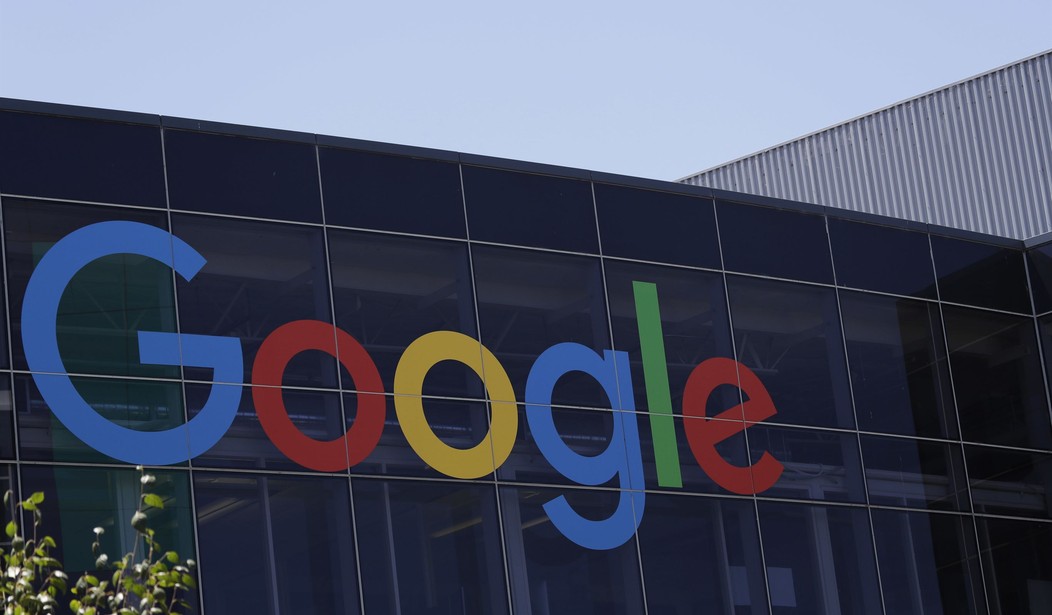In 2000, Google began using “don’t be evil” as its unofficial motto. That pledge, shared internally among employees, rightly acknowledged that any company trusted with vast amounts of personal information ought to maintain the trust and confidence of the people the company claims to serve. Google believed that the public could count on it to do the right thing.
Two decades later, while Google has gained power beyond anything the company’s founders could have imagined, it has long since departed from its original commitment to ethical behavior. Indeed, Google attempts to de-platform conservative voices, it has helped China oppress vulnerable minorities, and the corporate behemoth has had no qualms about misusing user data. Google’s recent failure to protect coronavirus contact tracing information is the latest example in a long line of betrayals.
In early 2020, as the world was coming to terms with the pandemic’s extent, companies like Google and Apple offered to assist with contact-tracing software. Their apps, available on Androids and iPhones, allowed users to determine whether they had come in contact with individuals exposed to COVID-19. Because successful contact tracing requires highly sensitive personal information regarding an individual’s movement, with whom he has been in contact, and whether the user has tested positive for coronavirus, Apple and Google reassured the public that any data it collected would be anonymized. Furthermore, the companies promised that they would never share information with anyone other than government health agencies. It was assurances such as these that induced many Americans to trust Apple and Google’s apps.
A recent report by The Markup reveals that Google failed to keep its word. In its current form, Google’s contact-tracing app allows third-party apps to access sensitive data collected by Google. There is no way to determine whether these other apps have harvested contact-tracing data from Google and, if so, what they have done with it. But perhaps more concerning than Google’s failure to design a secure app is its refusal to fix the vulnerability—even after a consulting firm hired by the Department of Homeland Security to test the app alerted Google that a simple fix could resolve the issue. In the end, Google’s multiple assurances that the public could trust it to protect sensitive user data proved to be worthless.
Recommended
Google’s conduct is, unfortunately, not surprising. The company has a long record of promising to protect user information while secretly misusing it for profit. For example, Google has been caught recording location information from its apps—despite explicitly telling users that their information would not be collected. In 2019, a whistleblower revealed that Google had acquired the medical data of up to 50 million Americans without their consent. And more recently, Google used tools it provided to schools to harvest data from students both inside and outside the classroom without parental consent—data that included, among many other things, browsing history, voice recordings, and location information.
One would think that scandals such as these would embarrass a company long dedicated to not being “evil,” but Google feels no shame. Instead, the company constantly seeks more of our data. And with a 90% share of the global search market, Google almost always gets what it wants. Indeed, with such a grip on the world’s information, Google can control what we read, what we see—what we think. Using that immense power, it has felt no qualms about silencing conservative voices or manipulating search results to prevent disfavored websites from being seen. Google has been caught distributing apps from companies that assist the Communist Chinese Government in persecuting Uighur Muslims and developing a special search engine that would allow the Chinese Communist Party to hide its abuses from the Chinese people. Some have even made the case that Google’s manipulations have changed enough votes to alter the outcome of American elections. In short, Google has become exactly what its old motto warned against—evil.
If Google can’t be counted on to do the right thing during a pandemic, why should we expect it ever to operate in the public’s interest? The time is now for Congress to take action and prevent future abuses against the American people. We have trusted Google for too long with too much. It has proven entirely undeserving of that trust.
And Congressman Ken Buck (R-CO) is serving as the tip of the spear in bringing much-needed accountability to the woke trillion-dollar Big Tech monopolists, like Google, by pushing 6 pieces of bipartisan legislation in the House to update our century-old antitrust laws and hold Big Tech accountable for their outrageous market abuses.
For too long, we’ve seen congressional Republicans tweet their outrage about Big Tech. Now is their change to actually do something big and important. They must join forces with Congressman Ken Buck to get these 6 critical bipartisan measures through Congress and signed into law.
A free market requires a functioning market. Antitrust is law enforcement that targets the anti-competitive market tumors. This is the opposite of regulation and “Big Government.” The era of Big Tech’s antitrust amnesty must end. Conservatives support free markets and law enforcement; we oppose amnesty.
The time for talking is over. We must break up Big Tech now.
























Join the conversation as a VIP Member